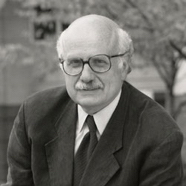Will The Trump J6 Case Be Heard Before The Election? It’s In The Supreme Court’s Hands
 Two pending Supreme Court cases will help determine the extent to which there is criminal accountability for former President Donald Trump for his role in the unprecedented effort to overturn the 2020 presidential election and for the mob that attacked the Capitol on January 6.
Two pending Supreme Court cases will help determine the extent to which there is criminal accountability for former President Donald Trump for his role in the unprecedented effort to overturn the 2020 presidential election and for the mob that attacked the Capitol on January 6.
This week, the Supreme Court heard oral argument in Fischer v. United States, a case in which the defendant, who entered the Capitol during the Jan. 6 riot, was indicted for violating a law, enacted in the wake of the Enron scandal, that makes it a crime for anyone to destroy evidence or who “otherwise obstructs, influences, or impedes any official proceeding.”
The government charged Joseph Fischer (and has already convicted many other Jan. 6 defendants) under this provision on the grounds that they obstructed an “official proceeding” – the work of Congress in counting the electoral votes. Fischer allegedly had a physical encounter with police at the Capitol, urged on other rioters, and said that he wanted to go “to war” and take “democratic [C]ongress to the gallows.”
Fischer argues that the statute is intended to apply only to the destruction or tampering of evidence and not to otherwise obstructing a proceeding.
It’s unclear where the Court will come down. But if the Court were to adopt Fischer’s narrow interpretation of the provision, some 170 defendants could have their Jan. 6 convictions overturned, including the leaders of two far-right extremist groups.
Two of the four criminal charges brought by Special Counsel Jack Smith against Trump in the Jan. 6 case also involve the obstruction of an official proceeding provision and could be affected by the decision. But, the Court’s decision would not kill the case.
_______________
Next week, the Supreme Court will hear oral argument in Donald J. Trump v. United States, in which Trump argues he has absolute immunity from criminal prosecution for official acts he took while President. Trump has been charged with criminal conduct for his role in attempting to overturn the results of the 2020 presidential election.
An amicus brief filed by former prosecutors, elected officials, government officials, and constitutional lawyers, and prepared by a group of attorneys led by former U.S. Solicitor General Seth Waxman, argued that Trump’s claim of absolute immunity “finds no support in the Constitution’s text or historical practice.”
The brief continues: “Even if one could hypothesize a circumstance in which immunity for a former President might be warranted, no tenable formulation of immunity could reach defendant’s machinations alleged here.”
Both Tanya Chutkan, the federal district judge conducting the trial, and a three-judge panel of the D.C. Circuit Court of Appeals, rejected Trump’s immunity claim. But the trial is on hold pending the outcome of the Supreme Court decision.
The American people have a right to know the outcome of this trial before they vote in the presidential election.
The Court had an opportunity to expedite the trial last December when Special Counsel Smith asked the Court to hear the immunity case directly and bypass the Court of Appeals. But the Court rejected Smith’s request.
Instead, the Supreme Court accepted Trump’s appeal of the Court of Appeals ruling in February and set oral argument for April 25, as the final argument of their term.
Last month, the Court showed how quickly it can act – ruling in Trump’s favor in the Colorado case that granted him access to the primary ballot. It took the Court just 25 days to decide the case after oral argument.
By that 25-day standard, the Court should be able to decide Trump’s immunity claim no later than May 20.
Trump is not expected to win immunity in this case.
A prompt ruling by the Court is necessary to help ensure the trial happens before the November election.
If one or more Justices tries to slow walk the case, the Court, as it has done in the past, can still issue its ruling in a timely fashion, and then at a later date issue the full opinion and any concurring and/or dissenting opinions. (See Ex parte Quirin, 317 U.S. 1 (1942))
Voters are entitled to know, before they vote, whether or not Trump is a convicted criminal for his role in the first attempted presidential coup in our history.
Whether that happens is now in the Supreme Court’s hands.
____________
Fred’s Weekly Note appears on Thursdays in Wertheimer’s Political Report, a Democracy 21 newsletter. Read this week’s and other recent newsletters here. And, subscribe for free here and receive your copy each week via email.